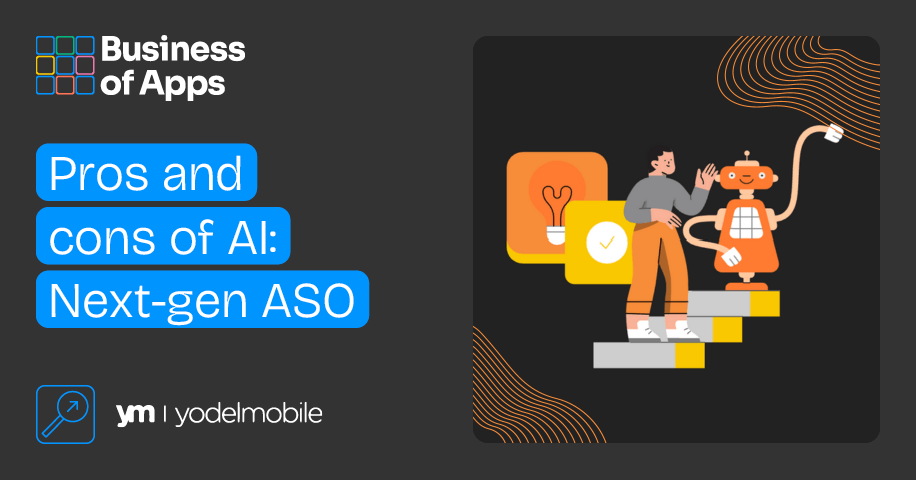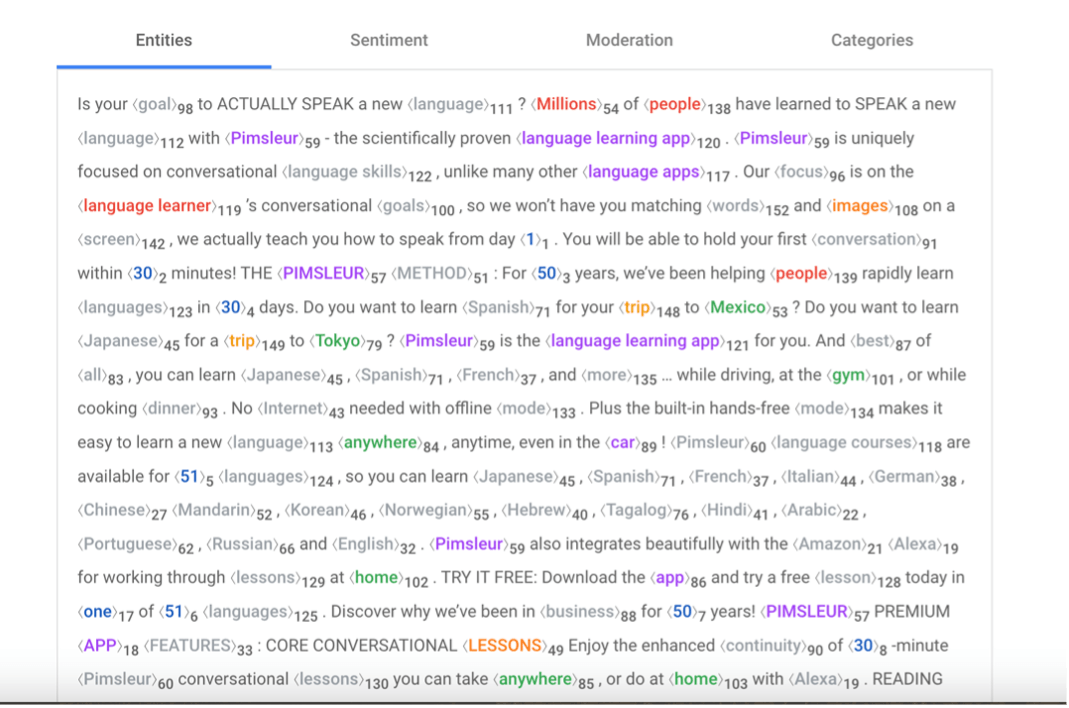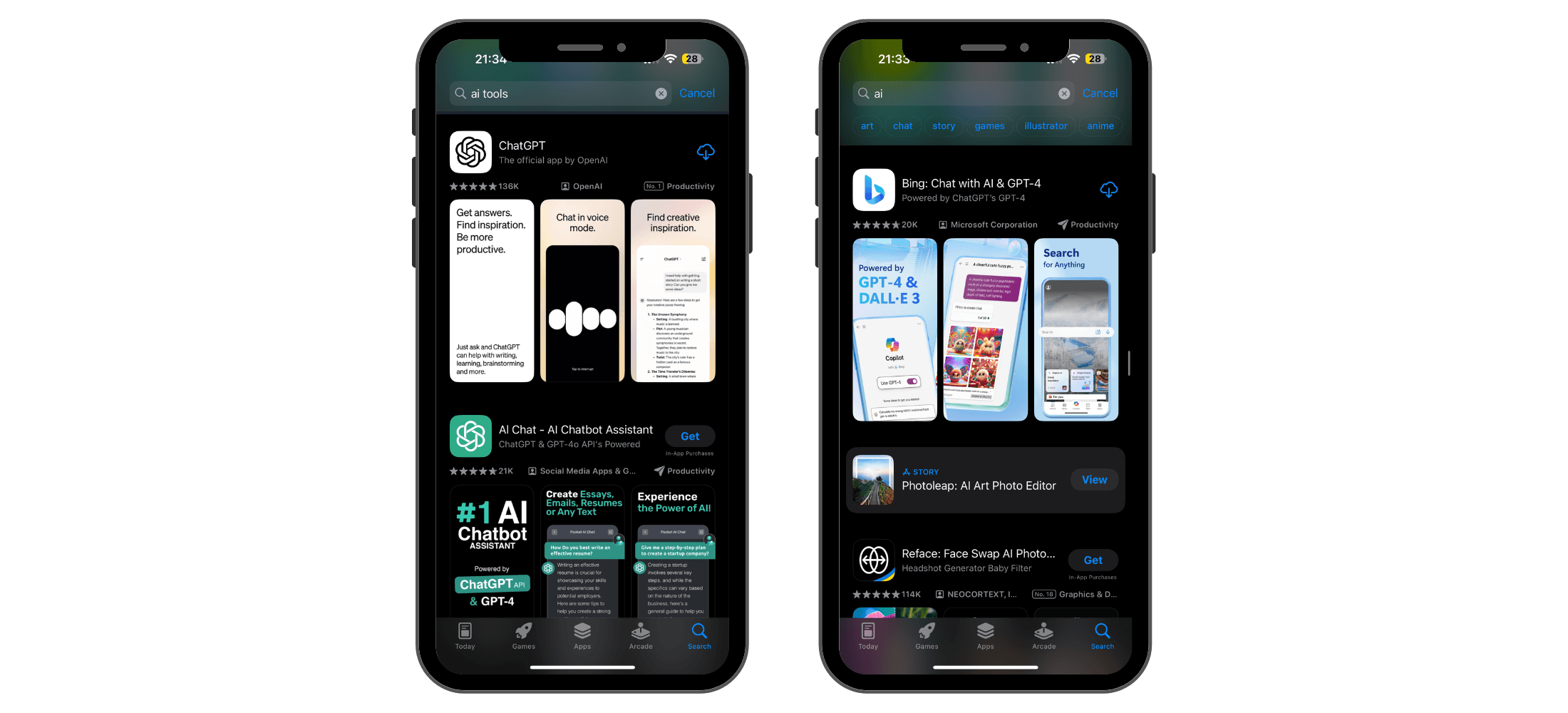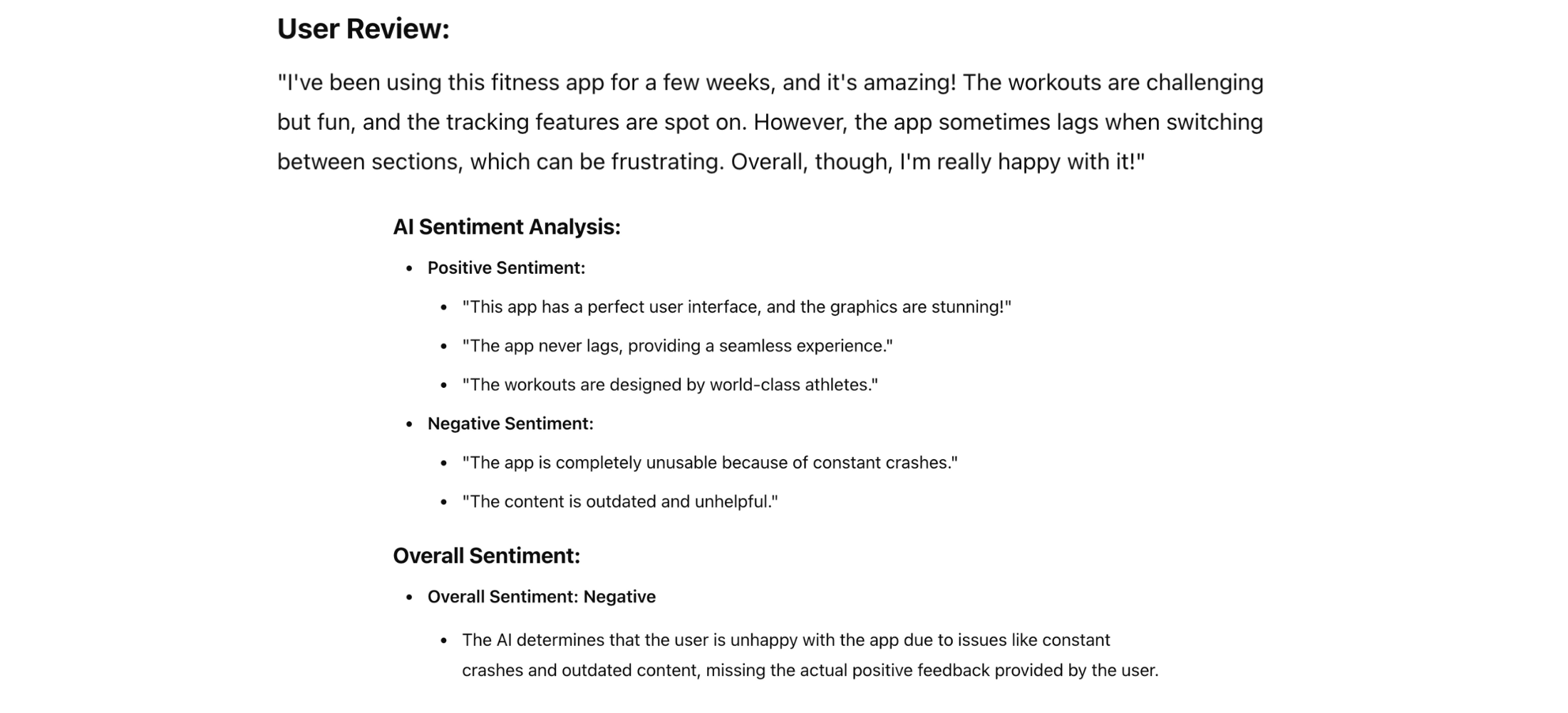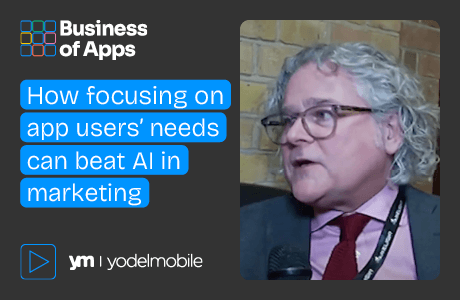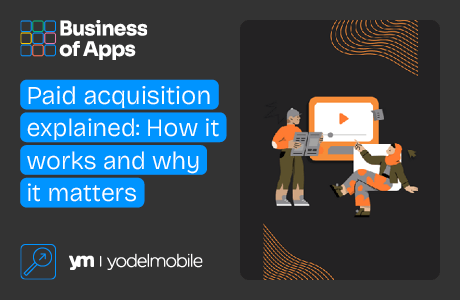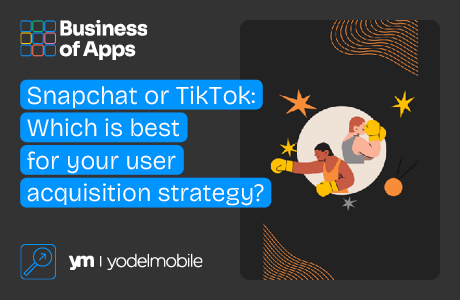With its ongoing accelerated growth and capability, artificial intelligence (AI) is emerging as a key player in several areas of technological advancement.
55% of organisations, including Google, are piloting or implementing generative AI solutions into their strategies. This means it is safe to say that AI is revolutionising many different industries and will continue to rise in use for the foreseeable future.
What does this mean for app marketers?
Today, app marketers have many powerful AI tools to enhance their efforts and strategies.
This advancement stands out for its potential to revolutionise App Store Optimization (ASO), where precise data analysis and sharp keyword optimisation can help to improve app discoverability and conversion in a competitive marketplace.
In this blog post, we will explore the pros and cons of AI when used for ASO, offering a balanced perspective to help you navigate this complex and evolving landscape.
This analysis will equip you with the insights needed to make the best choices for your app’s success. Before we begin, let’s lay the groundwork: What exactly is AI?
What is artificial intelligence (AI)?
Artificial Intelligence (AI) is the simulation of human intelligence processes by machines, especially computer systems.
These processes include:
- Learning: Acquiring information and rules for using it.
- Reasoning: Using rules to reach approximate or definite conclusions.
- Self-correction: The ability of a system to learn from its mistakes and adjust its processes to improve accuracy and performance over time.
In its current state, AI is still an evolving concept, primarily based on machine learning models; its continual application is on the rise, and we have yet to see the extent of its power.
Is artificial intelligence (AI) essential to app marketing?
AI has long been a subject of anticipation in both popular and scientific culture.
It can potentially transform businesses and make a huge impact across various industries, including app marketing.
For example, by utilising tools such as Google Natural Language (GNL) analysis, app marketers can gain insight into how the App Store search algorithms will ‘read’ your metadata.
The GNL algorithm analyses the textual content of app descriptions and other related metadata to understand the app’s context, sentiment, and relevance, which can influence app store visibility and rankings.
Entity analysis
Source: Yodel Mobile
Entity analysis shows us which keywords the algorithm prioritises for indexing the app metadata. The words highlighted in colour represent the most relevant terms.
This helps app marketers to better envision what kind of impact they can gain from their metadata optimisation.
AI’s ability to analyse vast amounts of data, predict user behaviour, and automate complex tasks offers unique opportunities for optimising app visibility and engagement.
Generally speaking, some AI tools, like Google Gemini or ChatGPT, can improve data analysis, keyword optimisation, sentiment analysis, and more.
Alongside its undeniable benefits, it’s crucial to consider the potential cons of AI where ASO is concerned.
These may include:
- The need for ongoing refinement to ensure optimal performance
- The risk of errors and inaccuracies
- The risk of homogenised data.
By carefully weighing these factors, marketers can harness AI’s power effectively while mitigating potential challenges, ultimately driving sustained growth and success in the competitive app market.
Let’s look closer at the pros and cons of using AI for App Store Optimization.
Examples of popular AI apps and tools are in the iOS app store
Source: Yodel Mobile
The pros and cons of AI in ASO
Pro: AI can improve your ASO metadata processing
One of the standout advantages of incorporating AI into your ASO efforts is the significant time savings it offers in analysis and decision-making processes.
We all know that ASO requires a lot of manual labour, all the way from data analysis and pulling, through to research and writing. That’s where the biggest benefit of AI becomes apparent.
It is estimated that 40% of working hours will be augmented or automated by generative AI. This indicates that AI can hugely increase time efficiency within your teams.
For example, traditional ASO methods often involve manual data collection, overly drawn-out analyses, and iterative adjustments, which can be time-consuming and labour-intensive, especially when dealing with large volumes of data and complex user behaviour patterns.
AI-powered ASO leverages machine learning algorithms to automate and expedite these tasks. AI can swiftly analyse extensive datasets from various sources, including user interactions, app store metrics, competitor performance, and market trends.
For example, AI-based tools like AppTweak’s Atlas AI and AppDNA can analyse large amounts of data, including user comments and reviews to identify language that users are associating with your app.
By understanding user sentiment, AI can help you identify changes to make to your app description, keyword lists and even your screenshots.
By processing this information in real-time, AI generates actionable insights promptly, allowing marketers to make data-driven decisions quickly.
This also means that AI algorithms can detect patterns and correlations that may not be apparent through traditional methods of analysis, enabling marketers to optimise app store listings, refine keyword strategies, and test different creative elements more effectively.
You can read some detailed insights into these processes here.
The visual above demonstrates an AI application generating metadata for a new Custom Product Page (CPP).
Con: The limitations of AI’s analyses
One of the cons of AI is reduced analysis quality. AI systems, despite their advanced capabilities, can sometimes produce insights that lack the nuanced understanding human analysts bring to the table.
An example of this is an AI tool that might suggest ads, metadata or visuals that perform well in one market based on data. However, it might not account for cultural differences that could make the same content ineffective or even offensive in another region.
Human analysts can recognise these subtleties and adjust campaigns accordingly.
AI tools and systems like ChatGPT, Bing and Gemini have also been found to provide users with fabricated data that appears authentic (as shown in the image below). These inaccuracies are so frequent that they have been coined ‘AI hallucinations‘. It is important to remain vigilant towards these types of occurrences as they can cause costly damage.
In the context of ASO, this can be damaging if AI tools were to generate false insights into user behaviour—such as incorrectly identifying popular app features or user preferences.
Based on that you might optimise your metadata in ways that do not resonate with real users, leading to lower conversion rates and visibility.
Make every effort not to blindly rely on the data obtained through AI.
ChatGPT user review analysis
Source: Yodel Mobile
The image above displays a data hallucination from ChatGPT, where ChatGPT has analysed data incorrectly, deducing negative sentiment where there is none.
How can AI harm your ASO efforts?
Poor analysis quality can be one of the cons of AI that is particularly concerning.
An AI platform might flag a set of keywords as high-performing based on manual data input.
The same AI platform may not recognise that these keywords attract low-quality traffic or don’t convert well.
Let’s illustrate this using the example of a piano learning app.
When generating keywords to optimise an app store listing, AI tools might identify the keyword “guitar” as high-performing, not recognising that this keyword suggestion is irrelevant to the user.
This error in the analysis is likely the product of AI deciding that as ‘piano’ and ‘guitar’ are both musical instruments, users will be looking for both within this app.
In this instance, AI did not grasp the concept of your app.
So, while the keyword “guitar” could draw high traffic volume, it might not lead to high user retention or meaningful engagement with the app’s primary features.
Pro: AI can enhance your keyword research
Of course, it is not all bad. Another compelling advantage of integrating AI into your ASO strategy is the enhancement of your keyword research and metadata processes.
App metadata, including titles, descriptions, and keywords, significantly influence app discoverability and user perception.
Traditionally, auditing this metadata to ensure it aligns with current best practices and market trends can be a painstaking and resource-intensive task.
AI tools can be used to optimise the app’s metadata by analysing and evaluating these elements against a backdrop of real-time data from the app stores.
A practical example of how to carry this out is as follows:
- Leverage cross-referenced data for precision: Utilise data from platforms like AppTweak to cross-reference user behaviour between app stores (iOS or Google Play) and traditional internet search engines like Google. This differentiation is crucial because app store behaviour differs significantly from web search patterns, requiring app-specific keyword strategies.
- Optimise for AI-driven presentation: Use AI-powered systems to generate keyword suggestions and metadata. These systems are optimised to present data in a format that aligns with how AI interprets and ranks content. As app stores increasingly adopt AI features, ensuring your app’s metadata is crafted in ‘AI’s language’ can boost visibility and relevance as it is already presented in a manner that is appealing to AI algorithms, meaning your app is more likely to be pushed to rank higher.
- Maintain human oversight to mitigate the cons of AI: While AI enhances efficiency, human intervention remains essential to fine-tune the output. Review and optimise AI-generated keywords and metadata to ensure they align with your brand’s voice and strategy. This step addresses potential cons of AI, such as lack of context or over-reliance on algorithms, ensuring a balanced and effective approach.
Con: The risk of homogenised metadata
While AI can positively impact your metadata processes, we can’t ignore one of the biggest drawbacks it poses in the same vein.
Using AI to create and optimise your app metadata puts you at risk of using homogenised content. This is one of the more prevalent cons of AI use. If your and your competitors’ apps are optimised by the same AI systems, their algorithms can create uniformity across your vertical.
This is because AI struggles with transformational creativity, which requires generating ideas beyond existing frameworks to create something entirely new.
See the image below, which depicts the product of using AI to create eCommerce app icons.
AI-generated eCommerce app icons
Source: Microsoft Copilot
Using AI to create app store creatives can lead to a lack of visual differentiation, making it harder for your app to stand out in a crowded marketplace.
This reduced visibility can negatively impact app store conversion rates, as potential users may struggle to find and choose your app amidst a sea of indistinguishable options.
Moreover, this homogenisation effect can stifle innovation in app marketing. If everyone relies on the same AI platforms to generate metadata, the opportunity for creative and unique approaches is diminished.
Google has shared some observations about these concerns.
It is worth taking these thoughts into consideration when deciding whether or not to implement AI into your ASO strategy.
Pros and cons of AI: Making your decision
While AI systems present a number of opportunities for enhancing App Store Optimisation (ASO), it is essential to remain aware of its limitations when deciding whether or not to include them as part of your ASO strategy. The cons of AI, such as the potential for homogenised store listing elements or reduced quality of nuanced analyses, highlight the need for a balanced approach.
App marketers can maximise their ASO efforts by integrating AI’s powerful data-processing capabilities with human creativity and strategic insight.
This hybrid approach ensures that apps not only benefit from the efficiencies and precision of AI tools but also maintain their unique identity and competitive edge in an increasingly crowded ecosystem.
Read through our app marketing blog for more innovative and cutting-edge insights like these.



